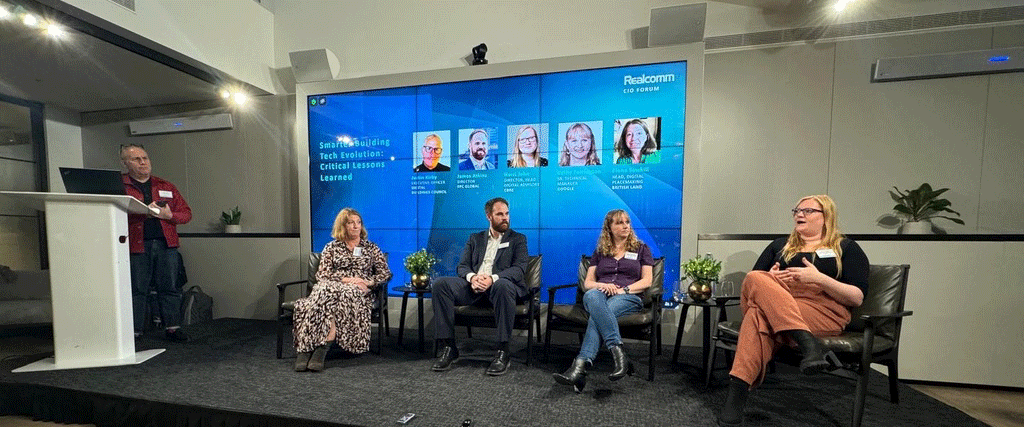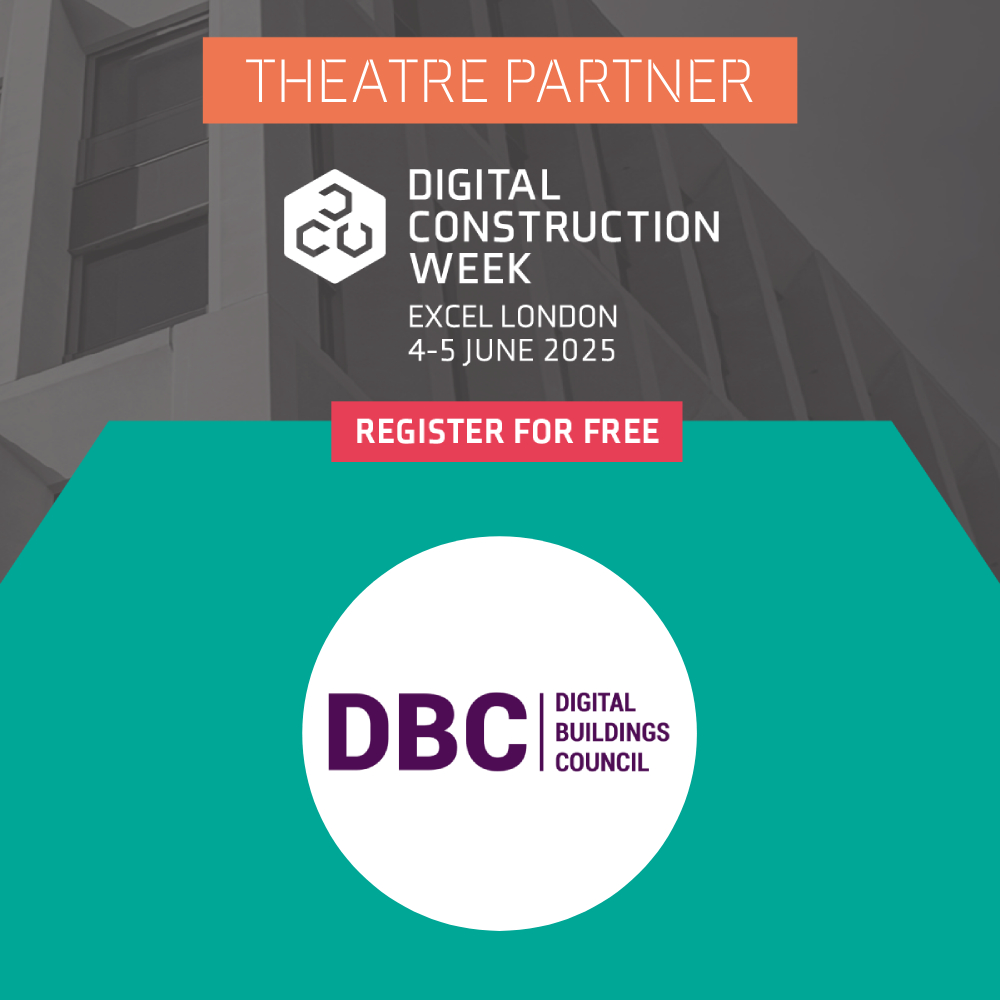
Late last month our Executice Officer Justin Kirby moderated the ‘Evolving Smart Building Technologies – Lessons Learned’ panel at Realcomm Events CIO Forum in London hosted by CBRE. The discussion brought together experts to explore the current landscape and future of smart building solutions:
– Fiona Sawkill at British Land
– James Atkins at FPC Global
– Kathy Farrington at Google
– Harri John MRICS at CBRE
Executive Summary
Key points included the necessity of stakeholder engagement and establishing a strategic framework prior to implementation, the slower-than-anticipated adoption of smart technologies, and the critical role of digital teams in the development process. Participants highlighted challenges with retrofitting existing structures, the importance of centralized decision-making, and addressing cost concerns early on. Discussions also covered future aspirations for the industry, such as the normalization of smart building practices, enhanced collaboration with customers, and the evolving function of Master Systems Integrators. Additionally, the group identified barriers to progress, including ROI challenges, device management issues, and the need for a solid foundation in technology. Action items included developing standards for smart buildings and investigating methods for better device management and reflecting smart building investments in property valuations. Overall, the meeting underscored the significance of strategic alignment and proactive engagement in advancing smart building initiatives.
Main Themes
Lessons Learned from Smart Building Journeys:
- Early and comprehensive engagement across all stakeholders, including internal teams, vendors, and facility managers, is crucial for successful implementation and ROI realisation. (James Atkins)
- The industry’s slow pace of progress, particularly regarding IP device management and security. (Kathy Farrington)
- The critical need for a clear strategy upfront, encompassing data management, maintenance, success measurement, and stakeholder alignment. (Harry John)
- Importance of detailed building audits in retrofit projects to avoid surprises and facilitate smoother implementation. (Fiona Sawkill)
- Integrating digital considerations into the early stages of new building development processes to avoid costly retrofitting later. (Fiona Sawkill)
Bridging the Gap Between Development and Operations:
- Centralizing decision-making and resource allocation for digital building initiatives within organizations, ideally under the COO function.
- Importance of clear communication and collaboration between development and property management teams. (Fiona Sorill)
- Incorporating digital considerations into operational contracts with vendors to ensure data utilization, action implementation, and ROI realization. (James Atkins)
Redefining the Role of the Master Systems Integrator (MSI):
- Moving away from reliance on middleware layers towards direct device integration using native protocols, potentially reducing reliance on MSIs for data integration. (Fiona Sawkill)
- A shift towards a more standardized and clearly defined role for MSIs, potentially as client-side representatives responsible for validation, configuration, and post-handover support. (Kathy Farrington, James Atkins)
Key Ideas/Facts:
- Slow Industry Progress: The smart building industry is moving slower than anticipated, with challenges in IP device management, security, and stakeholder alignment hindering progress. “It’s just moving way slower than than we expected” – Kathy Farrington
- Strategy is Crucial: Defining a clear digital building strategy upfront, including use cases, data management, and stakeholder engagement, is essential to avoid costly mistakes and ensure project success. “They just wanted to make progress…And, you know, kind of two years later, you’re having conversations with the same clients that just wanted to get ahead and not spend the time on strategy. And surprise, surprise, they haven’t actually done anything” – Harri John
- Breaking Down Silos: Centralizing digital building initiatives and fostering collaboration between traditionally siloed teams like development, property management, and IT is key to driving progress.
- Future Focus: The panellists envision a future where smart buildings are the norm, security is a given, and the focus shifts from selling the concept to delivering innovative applications and driving user value. “I really hope that in five years time as Harry said that a digital or smart building is just like run-of-the-mill.” – Fiona Sawkill
Quotes:
- On the importance of strategy: “You can’t track results unless you know the why of what you’re doing” – Harri John
- On industry progress: “We need to stop being have having to sell smart buildings. It should be people are coming to us and saying hey you’ve delivered a smart well you know we’ve got a smart building. I want that next thing” – Kathy Farrington
- On the future of MSIs: “I do think there is the need for an MSI but I think we need to better define what they’re doing” – James Atkins
Overall:
The panel discussion highlights the progress and challenges in the smart building industry. While significant lessons have been learned, the need for greater standardization, collaboration, and focus on the fundamentals like security and device management remains crucial for wider adoption and unlocking the full potential of smart buildings.
Podcast:
Justin has been experimenting with various recording and summary tools, and you can listen to a 15 minute AI-generated Podcast about the panel over on LinkedIn.
We will be sharing more summaries soon from other events we have been partnering with recently but in the meantime, stay connected by following the DBC on LinkedIn for the latest updates, events and insights from the founding members and reach out to learn how to join our community and contribute to our mission.




